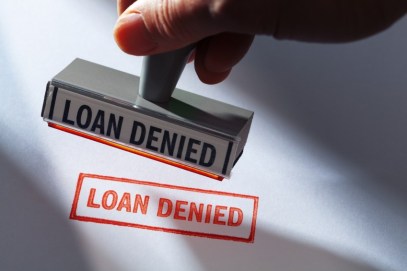What To Do If Your Mortgage Is Denied
Finding a mortgage lender is easy, but walking away with a mortgage can be trickier. In fact, only just over half of applicants are approved. This is especially true in light of tighter credit restrictions following the recent recession. With a logical approach to this rejection, you can improve your chances of getting a loan that works for you.
Why Was Your Application Denied?
You need to know why your mortgage application was rejected in order to fix the problem. Fortunately, rejection letters are required by federal law to include an explanation. Reasons can vary, but many rejection letters cite a low ratio of current home value to requested loan size. Other common issues involve employment history, credit rating and existing debt. Lenders do generally understand that acceptance can be difficult, so they may offer to look into your eligibility before requesting an application fee. This can also give you a look into your loan size options before you get started.
How Can You Ultimately Qualify?
Having your mortgage application rejected doesn’t mean that you can’t modify your approach for success. Your lender may offer an array of loan options, allowing for leeway based on your eligibility. For example, you may be able to get the loan you want if you’ll settle for a slightly higher interest rate. Of course, the riskier the loan, the more your lender is likely to charge. If you can settle for a smaller loan amount, you might find the interest rate more acceptable. Reapplication may also yield benefits after you take steps to improve your credit rating.
What Alternatives Are Available?
Your mortgage eligibility might differ between lenders. If your application is rejected by one firm, consider visiting another. Lenders local to your area may be more familiar with nearby home values, giving them an inside understanding of what’s risky there. Credit unions typically take a more flexible stance on applications from their members, making these lenders a worthwhile alternative for many consumers. Even then, however, credit unions will have to account for application risks and respond accordingly.
If you’ve been rejected for a mortgage, don’t despair. The steps listed here can help guide you toward acceptance for a loan that meets your needs. With no credit score penalty for repeated rejections within a 30-day period, there’s also no harm in continuing to reapply as you improve your eligibility.
